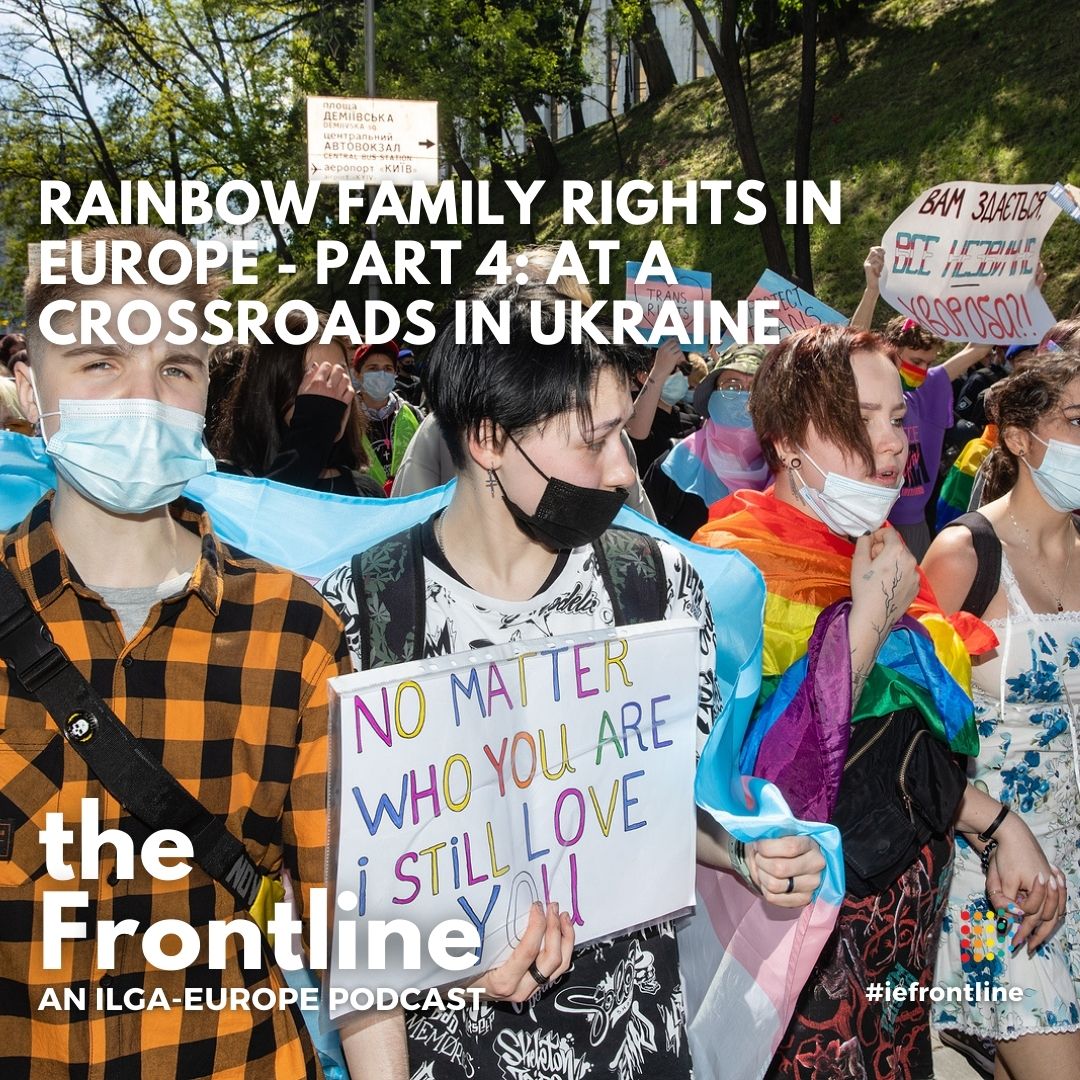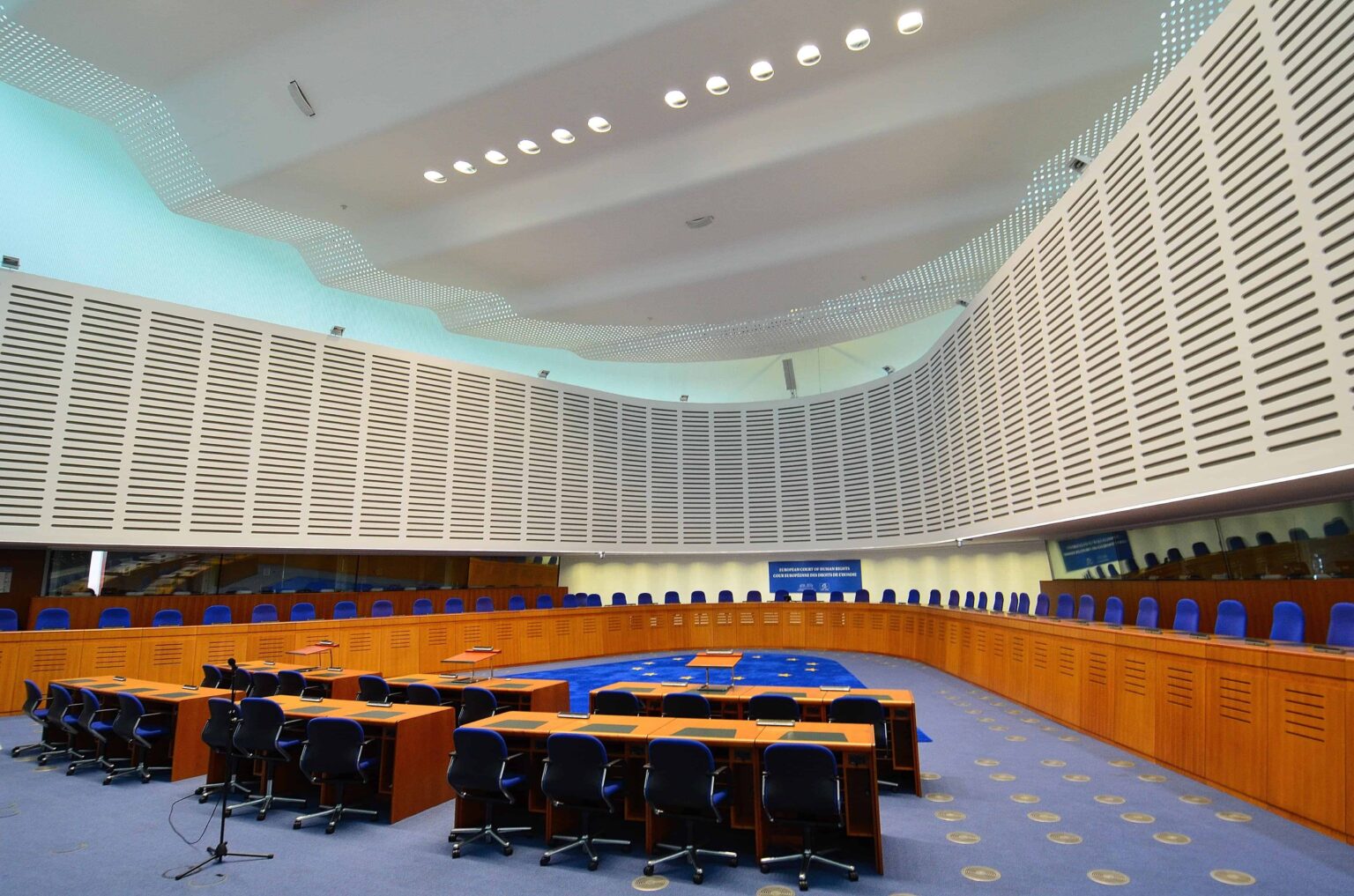Rainbow Family Rights in Europe – Part 4: At a Crossroads in Ukraine

Several pathways for partnership rights were part of the Ukraine took in EU-Ukraine Association agreement 2014-2016.
Based on it the Ukrainian government developed a human rights strategy plan 2013-2019 which included specific commitments to LGBT rights, but many elements of this strategy were not implemented, and civil partnership was dropped from it. However, post-revolution and against the backdrop of Russia’s ongoing military intervention, it is a crossroads time for LGBTI and partnership rights in the country.
In the fourth part of our mini-series on rainbow family rights, during which we we’re looking at the issues affecting LGBTI partners, parents and their children across Europe, we are joined by activists Olena Shevchenko, from the Kyiv-based organisation, Insight and Andriy Maymulakhin, from Nash Mir in the city of Luhansk, about the outlook for partnership rights in Ukraine.
ILGA-Europe’s key demands for the recognition of diverse families
Position on partnership and parenting, adopted in October 2006, revised in 2014.
ILGA-Europe strives for equality in law, public policies and practices relating to any form of partnership (including marriage, registered partnership and cohabitation) and parenting (reproductive rights, adoption, fostering and parental responsibility). ILGA-Europe particularly strives for the elimination of restrictions on the rights and responsibilities of partners and parents based on sexual orientation, gender identity or gender expression. Furthermore, ILGA-Europe supports an inclusive understanding of family that is not dependent only on the legal status of marriage or partnership but also on the recognition of de facto family links. Most importantly, the rights of the child are at the core and guiding ILGA-Europe’s demands for recognition of diverse families.
Oliari and Others and Orlandi and Others v Italy

Same-sex marriage/ Civil union
Oliari and Others (No. 18766/11),
Orlandi and Others v Italy (No. 26431/12), 27 Mars 2014
Find Court’s judgement here. (Violation of Article 8 of the Convention and award of damages)
- The applicants complained that the Italian legislation did not allow them to get married or enter into any other type of civil union and thus they were being discriminated against as a result of their sexual orientation.
- The European Court of Human Rights delivered its judgement on 21 July 2015.
- The Court made a lengthy reference to the submission, particularly the demonstration of the positive obligation to provide some means of recognition supported by the emerging consensus in European and other democratic societies (paras 134-139) and of the indirect discrimination against same-sex couples (paras 140-143).
- The Court found that the Italian Government had overstepped their margin of appreciation and failed to fulfil their positive obligation to ensure that the applicants have available a specific legal framework providing for the recognition and protection of their same-sex unions (para 185). To find otherwise today, the Court would have to be unwilling to take note of the changing conditions in Italy and be reluctant to apply the Convention in a way which is practical and effective (para 186). It found violation of Article 8 of the Convention, and considered unnecessary examining the allegations under Articles 14 in conjunction with 8, and Article 12.
Vallianatos & Mylonas v. Greece, C.S. & Others v. Greece

Civil unions
(Applications Nos. 29381/09 & 32684/09), 20 June 2011
Find Court’s judgement here. (Violation of Article 14)
- The applicants alleged that the fact that the civil unions were designed only for couples composed of different-sex adults infringed their right to respect for their private and family life and amounted to unjustified discrimination between different-sex and same-sex couples.
- ILGA-Europe, together with the International Commission of Jurists, the International Federation for Human Rights and the AIRE Centre submitted the following:
- According to the case-law of the ECtHR and national constitutional courts, a strong justification is required when the ground for a distinction is sex or sexual orientation. A growing number of national courts, both in Europe and elsewhere, also required that unmarried different-sex and same-sex couples be treated in the same way and a large number of Council of Europe member States have enacted legislation recognising same-sex relationships.
- The case of Greece was unique, as it was the only European country to have introduced civil unions while excluding same-sex couples from their scope of application.
- The European Court of Human Rights delivered its judgement on 7 November 2013.
- The Court referred to the interveners’ analysis of its own case-law and of national constitutional courts (para 69). The Court considered that the Government had not offered convincing and weighty reasons capable of justifying the exclusion of same-sex couples from civil unions. Accordingly, it found a violation of Article 14 of the Convention taken in conjunction with Article 8.
Families, Partners, Children and the European Union
ILGA-Europe’s policy paper on how various aspects of EU law are impacting upon national rules relating to ‘personal status’ in its broader sense.
This Policy paper is available in 5 languages.
Issues such as marriage, partnership and parenting have been traditionally treated as falling within national legal competence and hence outside the powers of the European Union. However, this situation is now rapidly changing. The boundaries between national and EU competences have gradually blurred over time.
The Union is now committed to promoting social inclusion through policies in a wide range of fields such as employment, education, healthcare and housing. Moreover, the creation of the “Area of Freedom, Security and Justice” has demanded much greater involvement of the Union in the coordination of civil law systems, including family law. In this policy paper, we examine how various aspects of EU law are impacting upon national rules relating to “personal status” in its broadest sense.